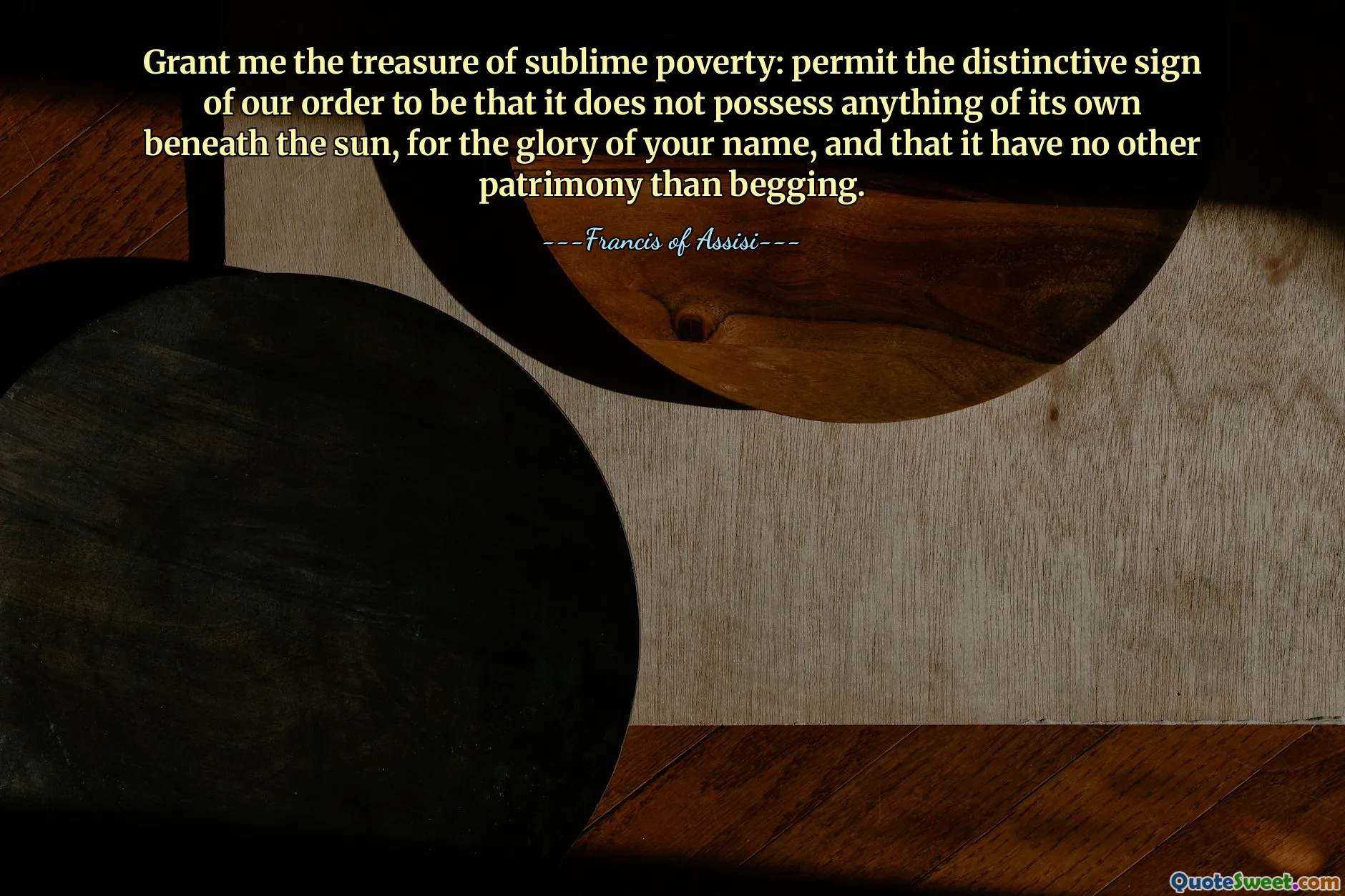
Grant me the treasure of sublime poverty: permit the distinctive sign of our order to be that it does not possess anything of its own beneath the sun, for the glory of your name, and that it have no other patrimony than begging.
📖 Francis of Assisi
This quote embodies a profound expression of spiritual humility and the pursuit of true simplicity. It advocates for a life that is detached from material possessions, emphasizing that true wealth lies not in material riches but in the purity of one’s heart and devotion. The desire for 'sublime poverty' reflects a commitment to relinquishing worldly attachments, thereby fostering an environment of genuine trust in divine provision. Such an approach encourages individuals to see possessions as transient and insignificant in the face of spiritual fulfillment, promoting a lifestyle of simplicity that seeks to eliminate the barriers created by greed or attachment. It also highlights a consecrated identity rooted in humility and reliance on divine grace, exemplified through the vow of poverty. The mention of having no patrimony but begging underscores the humility and radical detachment that characterize a spiritual path aiming for unity with the divine's purposes. This attitude challenges contemporary values that often equate success with material wealth, urging for introspection about what constitutes true treasure—the intangible virtues of faith, humility, and service. Embracing such a life can foster communal bonds, reduce greed-driven inequalities, and foster a sense of shared purpose rooted in spiritual richness rather than material accumulation. Ultimately, it invites reflection on the nature of possessions and the pursuit of higher virtues, inspiring one to find fulfillment by relinquishing the need for superficial wealth in favor of deeper spiritual treasures.







